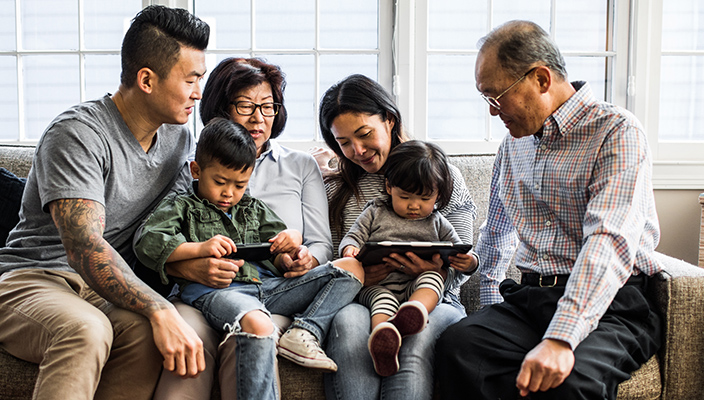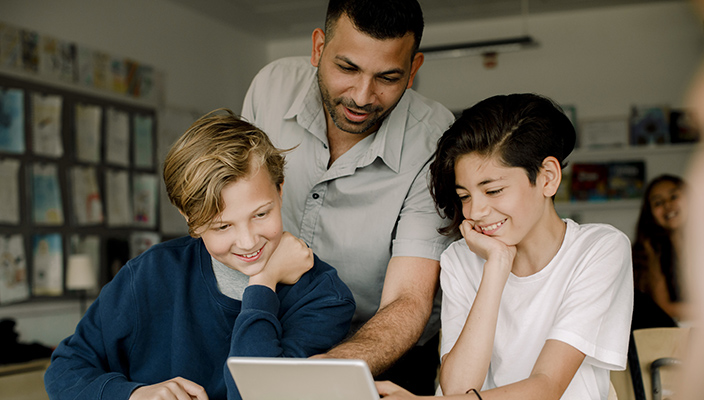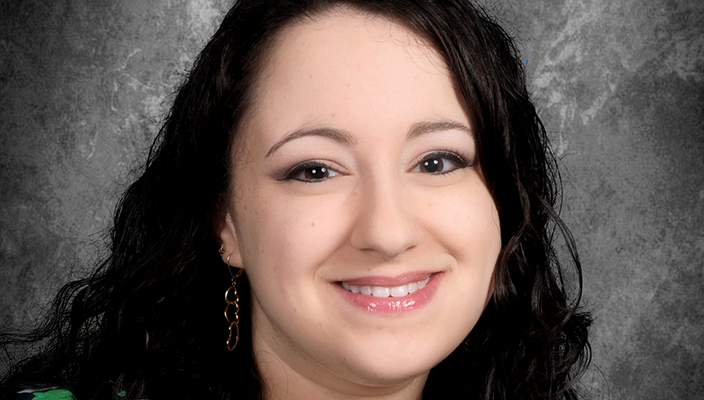Our health doesn't just reveal itself when we turn 18, the age you currently have to be to join the All of Us Research Program. Our childhood and teenage years shape our adulthood. Our adult well-being comes from learned habits, opportunities, and, of course, our genes.
What can we learn about health and health care from our earlier years? All of Us is working to find out. We plan to include infants, children, and adolescents in the next year or two. This will expand what is already one of the largest, most diverse groups of research participants ever. It’s another step toward truly including all of us.
All of Us has named Sara Van Driest, M.D., Ph.D., as its Director of Pediatrics to lead the effort to bring children from birth to age 18 into the program.
Dr. Van Driest is a physician-scientist from the Vanderbilt University Medical Center. As a pediatrician, she treats children and adolescents. She has studied how medications such as antibiotics and painkillers work in children. But like much other research, studies with children often fail to include kids from diverse communities, such as non-White races and ethnicities.
"It's been clear to me that pediatrics research often doesn't reflect the patient populations that I see in my own clinic," Dr. Van Driest said. "What drew me to All of Us is the possibility of partnering with families to build a large cohort of pediatric participants who reflect the diversity of our country."
Broadening the Landscape
All of Us is seeking to speed up research in precision medicine. Precision medicine takes into account individual differences in patients' genes, environments, and lifestyles. This kind of health research is new for adults and for children.
Dr. Van Driest wants to make sure All of Us includes different kinds of families and life experiences. She will help develop a rich data set that better represents a diversity of participants. "Then, in the future, we can do a better job taking care of children with evidence-based approaches for precision health," she said.
The program will increase the amount of research with children and teens. Historically, children were once seen as too vulnerable to participate in research. But Dr. Van Driest says that approach leads to a lack of knowledge. Research is needed to find the best ways to support child health.
“There is so much to learn from children and adolescents. All of Us can help researchers do that. The experience of being a child is so different now than it was 10 or 20 years ago," said Dr. Van Driest. "With the data we collect, researchers won’t just identify risk factors for poor health, but they can also identify resilience factors for good health."
The Importance of Consent
Doing research with children and adolescents is different from working with adults. Young children might not be able to read or speak for themselves, so their parents or guardians need to give permission for them to participate in research.
Minors can't legally provide consent, but they can say yes or no. This is a process called assent. "If a 12-year-old says, 'I don't want to do this, this is not something I want to participate in,' we will respect that," Dr. Van Driest said. But kids mature at different rates. Sometimes it takes repeat visits to make sure the child and the family are ready to move forward.
"Experienced research staff are the key to success in pediatric research," Dr. Van Driest said. "And we have really experienced teams to help us do this kind of work."
Also, as any parent will tell you, children might not be as patient as adults. They might need breaks during an enrollment visit. And they may need toys and distractions. Staff will make a special effort to be sure our research activities are as pleasant as they can be for young people and their families.
Adults Were Children Too
Pediatrics research with All of Us doesn't have to start with children. Some adult participants have medical records that reach back as far as 1980. Some researchers are already making use of that electronic data. Dr. Van Driest hopes researchers continue to link that early data to later conditions in adults. "That is something that folks can start looking at now," Dr. Van Driest said.
Enrolling children requires some big changes to how we work. For example, your All of Us account was designed for an adult. It belongs to you. It only includes your information. And you maintain your account over a lifetime. That system won’t work for children. Parents may need to share accounts with their children. The program hopes that if a parent enrolls their baby, the baby will participate long enough to reach adulthood. What does that mean for that new adult’s account? It starts out being handled by a parent, but somewhere in the teen years—before or after 18—the teen might take it over.
There are many practical and technical issues that we need to figure out. The effort will take some time, Dr. Van Driest said. We can’t begin to enroll children until we have a plan in place to answer all of these important questions.
"Right now, there is a push to build what we need to in the program to enable pediatric participation. And there's a lot of building that needs to be done!" she said. "We need to look at the entire participant journey from the lens of a young person. We want to make sure that it's a great experience for the children and their families."
Read more about Dr. Van Driest and her vision for All of Us.










